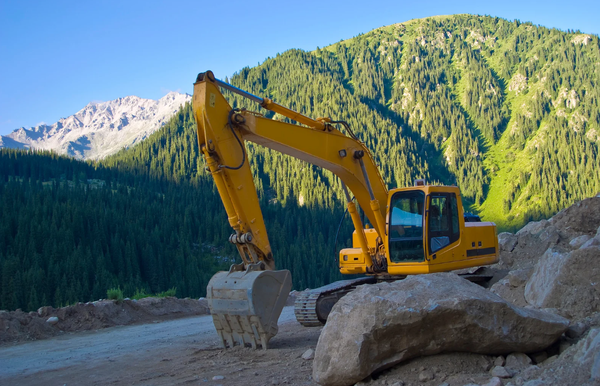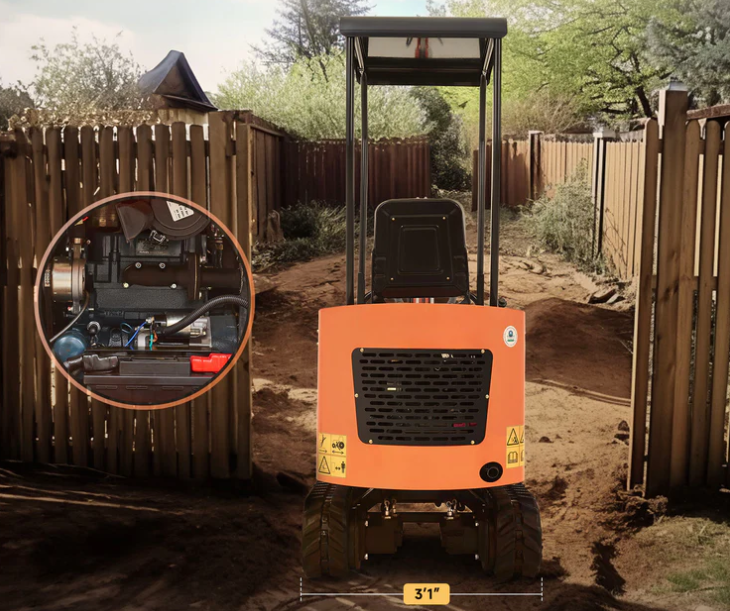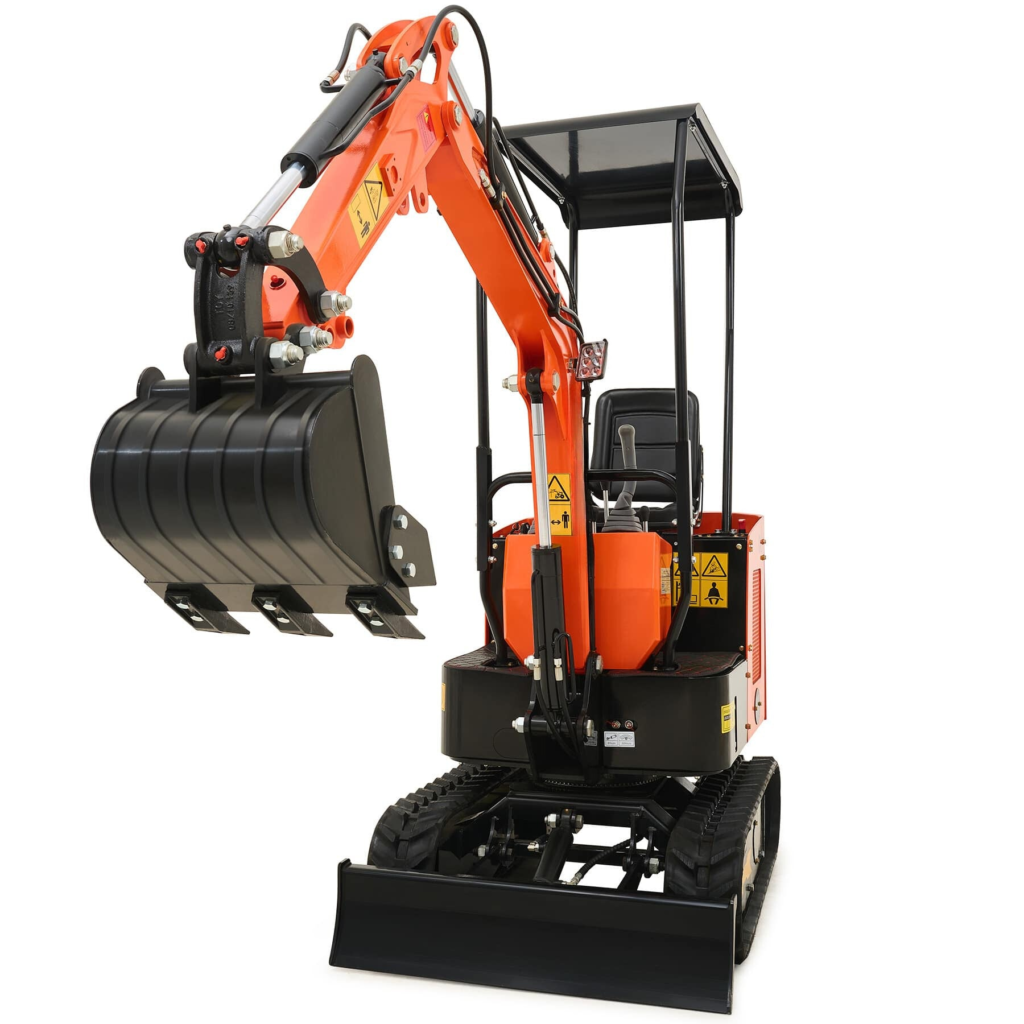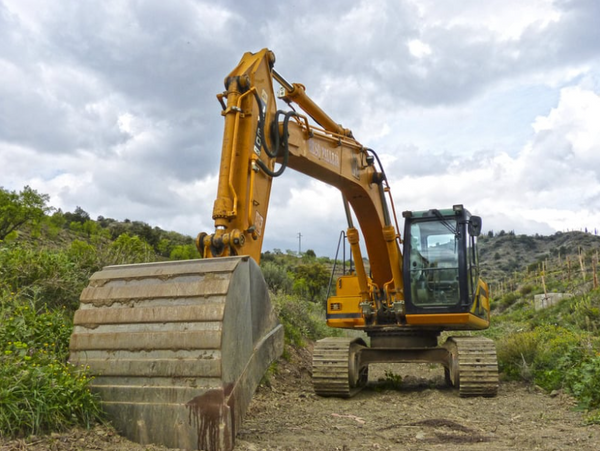Free Shipping Within USA | 1-year Warranty
The Breakthroughs in Kubota 3- Cylinder Diesel Engine Emission
In an era where environmental sustainability is more critical than ever, diesel engines are under the microscope for their impact on air quality and public health. Despite their reputation for durability and efficiency, traditional diesel engines are significant contributors to air pollution. However, some 3-cylinder Kubota diesel engines have exemplified their stringent adherence to the tough EPA Tier 4 emission standards, showcasing their commitment to environmental responsibility and technological innovation. This guide will mainly delve into Kubota 3-cylinder D722 diesel engine, discuss the critical role of EPA Tier 4 emissions regulations, and explore the advanced technologies employed in the Kubota 3-cylinder diesel engines that help them meet these stringent requirements.
What are Diesel Engine Emissions?
Diesel engines, the powerhouse behind many mini excavators, emit a mixture of gasses and particulates that can have severe implications for the environment and human health. Key pollutants include nitrogen oxides (NOx), carbon dioxide (CO2), and particulate matter (PM). These emissions contribute significantly to air pollution, leading to smog, acid rain, and deteriorating air quality that can trigger a range of health issues, from respiratory problems to heart disease.

The Importance of EPA Tier 4 Emissions Standards
At present, EPA Tier 4 emissions standards are the strictest EPA emissions for non-road diesel engines. These regulations aim to decrease harmful emissions by putting a restriction on the amount of particulates and NOx that engines can emit into the atmosphere. The importance of these standards cannot be overstated, as they play a crucial role in improving air quality and making diesel engine operations more sustainable. Contrary to several manufacturers who have faced considerable challenges meeting these standards, Kubota has met these stringent requirements early by incorporating advanced emission control technologies in their diesel engines.
What are the Technological Advancements in Kubota Diesel Engine?
Kubota has long been at the forefront of diesel engine technology. To enhance efficiency and minimize emissions, some cutting-edge technologies are used:
- Common Rail System: This system can deliver precise quantities of fuel injected at high pressure, optimizing the combustion process and reducing wasteful fuel consumption and emissions.
- Exhaust-Gas-Recirculation (EGR): EGR helps reduce NOx emissions by recirculating a portion of an engine’s exhaust gas back to the engine cylinders, lowering combustion temperatures and consequently reducing emissions.
- Diesel Particulate Filter (DPF): The DPF can capture particulate matter from the engine’s exhaust, preventing these harmful pollutants from being released into the atmosphere, and significantly reducing the particulate emissions from the engine.
- TVCS (Three Vortex Combustion System): Kubota’s proprietary TVCS enhances the air/fuel mixture at the point of combustion, creating three intertwined vortexes that ensure the fuel is thoroughly mixed with air. This leads to more complete combustion, thereby maximizing efficiency and reducing emissions.

Why Choose Kubota 3-Cylinder D722 Diesel Engine?
Building on the technological advancements, the Kubota 3-cylinder D722 diesel engines offer several key advantages that thake them an exceptional choice for businesses and operators focused on efficiency and environmental stewardship:
Global Emission Standards Compliance: As highlighted earlier, the D722 Kubota engines, with advanced features like the E-TVCs (Three Combustion System) are at the forefront of meeting global emissions regulations. The D722 engine complies with EPA/CARB Tier 4 emissions levels, making it a sustainable choice for markets that demand stringent environmental compliance.
Fuel Efficiency and Operational Cost Savings: The enhanced fuel economy of the D722 Kubota engine means longer operation times between refuels. The availability of alternative fuel options like the WG752-G (gasoline) and WG752-GL (dual fuel: gasoline/LPG) also provides flexibility while maintaining its performance, ensuring seamless integration into various applications.
Durability and Reliability: Kubota engines are known for their robust construction, capable of withstanding the rigors of both heavy-duty applications and adverse environmental conditions. The D722 Kubota engine continues this tradition by offering reliable power that can reduce downtimes and maintenance costs over its lifespan.

13.8 HP Kubota Engine 1.1 Ton Mini Excavator with 5.7 ft. Maximum Digging Depth $0.999.99
If you are looking for mini excavators equipped with the D722 Kubota engine at competitive prices, AHM’s 1.1 Ton mini excavator equipped with the D722 Kubota engine can be a viable and budget-friendly option. It also comes equipped with the reliable D722 Kubota engine, providing substantial digging capabilities with a maximum depth of 5.7 feet. This makes it ideal for working in confined areas like alleys, gardens, and narrow lanes. Moreover, it’s priced under $10,000, offering an affordable solution for diverse construction needs without compromising your financial plans.
Other Practical Tips for Operators to Minimize Emissions
To further enhance the environmental benefits of using Kubota 3-cylinder diesel engine, here are some tips that operators can adopt:
Regular Maintenance: Regular checks and upkeep ensure engines operate at their best. Routine oil charges, filter replacements, and system inspections can prevent major issues and maintain low emission levels.
Reducing Idling Times: Cutting down on idle time saves fuel and decreases exhaust emissions. Operators should turn off engines when not actively needed instead of letting them run continuously.
Continuous Operator Training: Educating operators on the best practices for operating and maintaining diesel engines is important. Well-trained operators are more likely to use equipment efficiently, leading to lower emissions and improved overall performance of diesel engines.

In summary, selecting the right diesel engine is crucial in an era where sustainable industrial practices are important. The Kubota 3-cylinder D722 diesel engine excels not only in its commitment to operational excellence but also in its adherence to the strictest emission standards. This compliance with EPA Tier 4 regulations highlights its role in fostering environmental responsibility.
